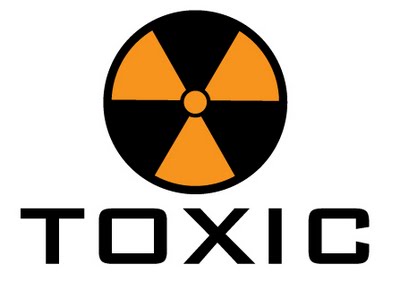
Toxic Hepatitis
Toxic Hepatitis
We hear so much about Viral Hepatitis but, did you ever think that everyday products could cost you your health or even your life? If you’re like most people, you probably never gave it much thought. I know I didn’t. So, let’s talk about Toxic Hepatitis for a moment…
What is it, and how does it pertain to me?
Toxic hepatitis is an inflammation of your liver in reaction to certain substances to which you’re exposed. Toxic hepatitis can be caused by alcohol, chemicals, drugs or supplements. (This includes things that are breathed in, come in contact with your skin, or are ingested.)
In some cases, toxic hepatitis develops within hours or days of exposure to a toxin. In other cases, it may take months of regular use before signs and symptoms of toxic hepatitis appear.
The symptoms of toxic hepatitis often go away when exposure to the toxin stops. But toxic hepatitis can permanently damage your liver, leading to irreversible scarring of liver tissue (cirrhosis) and in some cases to liver failure.
Mild forms of toxic hepatitis may not cause any symptoms and may be detected only by blood tests. When signs and symptoms of toxic hepatitis occur, they may include:
Yellowing of the skin and whites of the eyes (jaundice)
Itching
Abdominal pain in the upper right portion of the abdomen
Fatigue
Loss of appetite
Nausea and vomiting
Rash
Weight loss
Dark or tea-colored urine
Causes of Toxic Hepatitis:
Toxic hepatitis occurs when your liver develops inflammation because of exposure to a toxic substance. Toxic hepatitis may also develop when you take too much of a prescription or over-the-counter medication.
Your liver performs hundreds of vital functions, including removing most drugs and chemicals from your bloodstream, and breaking them down so that they can be quickly eliminated from your body. Breaking down toxins creates byproducts that can be highly damaging to the liver. Although the liver has a great capacity for regeneration, constant exposure to toxic substances can cause serious — and sometimes irreversible — harm.
Toxic hepatitis can be caused by:
Alcohol. Heavy drinking over many years can lead to alcoholic hepatitis – inflammation in the liver due to alcohol.
Over-the-counter pain relievers. Nonprescription pain relievers such as acetaminophen (Tylenol, others), aspirin, ibuprofen (Advil, Motrin, others) and naproxen (Aleve) can damage your liver, especially if taken frequently or combined with alcohol.
Prescription medications. Medications linked to serious liver injury include halothane, isoniazid, valproic acid (Depakene), phenytoin (Dilantin, Phenytek), azathioprine (Azasan, Imuran), niacin (Niaspan), atorvastatin (Lipitor), lovastatin (Mevacor), pravastatin (Pravachol), simvastatin (Zocor), fluvastatin (Lescol), rosuvastatin (Crestor), ketoconazole, certain antibiotics, certain antivirals and anabolic steroids.
Herbs and supplements. Herbs considered dangerous to the liver include cascara, chaparral, comfrey, kava and ephedra. Children can develop liver damage if they mistake vitamin supplements for candy and take large doses.
Industrial chemicals. Chemicals you may be exposed to on the job can cause liver injury. Common chemicals that can cause liver damage include the dry cleaning solvent carbon tetrachloride, a substance used to make plastics called vinyl chloride, the herbicide paraquat and a group of industrial chemicals called polychlorinated biphenyls.
Factors that may increase the risk of toxic hepatitis include:
Taking over-the-counter pain relievers or certain prescription drugs. Taking a medication or over-the-counter pain reliever that carries a risk of liver damage increases your risk of toxic hepatitis. This is especially true if you take multiple medications or take more than the recommended dose of medication.
Having a liver disease. Having a serious liver disorder such as cirrhosis or fatty liver disease makes you much more susceptible to the effects of toxins.
Having hepatitis. Having viral hepatitis caused by the hepatitis B or C viruses makes your liver more vulnerable.
Aging. As you age, your liver breaks down harmful substances more slowly. This means that toxins and their byproducts stay in your body longer.
Drinking alcohol. Drinking alcohol while taking medications increases the toxic effects of most drugs.
Being female. Because women seem to metabolize certain toxins more slowly than men do, their livers are exposed to higher blood concentrations of harmful substances for longer periods of time. This increases the risk of toxic hepatitis.
Having certain gene defects. Inheriting certain genetic defects that affect the production and action of liver enzymes that break down toxins may make you more susceptible to toxic hepatitis.
Working with industrial toxins. Working with certain industrial chemicals puts you at risk of toxic hepatitis.
References: MayoClinic.com
Teoh NC, et al. Liver disease caused by drugs. In: Feldman M, et al. Sleisenger & Fordtran’s Gastrointestinal and Liver Disease: Pathophysiology, Diagnosis, Management. 9th ed. Philadelphia, Pa.: Saunders Elsevier; 2010. http://www.mdconsult.com/books/about.do?eid=4-u1.0-B978-1-4160-6189-2..X0001-7TOP&isbn=978-1-4160-6189-2&about=true&uniqId=229999237-13. Accessed Nov. 11, 2010.
Lewis JH. Liver disease caused by anesthetics, toxins and herbal preparations. In: Feldman M, et al. Sleisenger & Fordtran’s Gastrointestinal and Liver Disease: Pathophysiology, Diagnosis, Management. 9th ed. Philadelphia, Pa.: Saunders Elsevier; 2010. http://www.mdconsult.com/books/about.do?eid=4-u1.0-B978-1-4160-6189-2..X0001-7TOP&isbn=978-1-4160-6189-2&about=true&uniqId=229999237-13. Accessed Nov. 11, 2010.
Jones AL, et al. Hepatic toxicology. In: Shannon MW, et al. Haddad and Winchester’s Clinical Management of Poisoning and Drug Overdose. 4th ed. Philadelphia, Pa.: Saunders Elsevier; 2007. http://www.mdconsult.com/books/about.do?about=true&;eid=4-u1.0-B978-0-7216-0693-4..50002-5&isbn=978-0-7216-0693-4&uniqId=226391226-4. Accessed Nov. 12, 2010.
Guss DA, et al. Disorders of the liver and biliary tract. In: Marx JA, et al. Rosen’s Emergency Medicine. 7th ed. Philadelphia, Pa.: Mosby; 2009. http://www.mdconsult.com/books/about.do?eid=4-u1.0-B978-0-323-05472-0..X0001-1–TOP&;isbn=978-0-323-05472-0&about=true&uniqId=230052158-6. Accessed Nov. 11, 2010.
Rodgers GC, et al. Poisonings. In: Kliegman RM. Nelson Textbook of Pediatrics. 18th ed. Philadelphia, Pa.: Saunders Elsevier; 2007. http://www.mdconsult.com/das/book/body/208746819-6/0/1608/0.html. Accessed Nov. 17, 2010.
It goes without saying, that those with existing liver disease need to be exceptionally careful when it comes to further exposure to liver ‘antagonists.’ The actual list of known antagonists is so long that it would be almost impossible to provide. The best course of action? When in doubt, always talk to your doctor before using any OTC medication, Nutritional Supplement, Topical ointment/spray, etc.